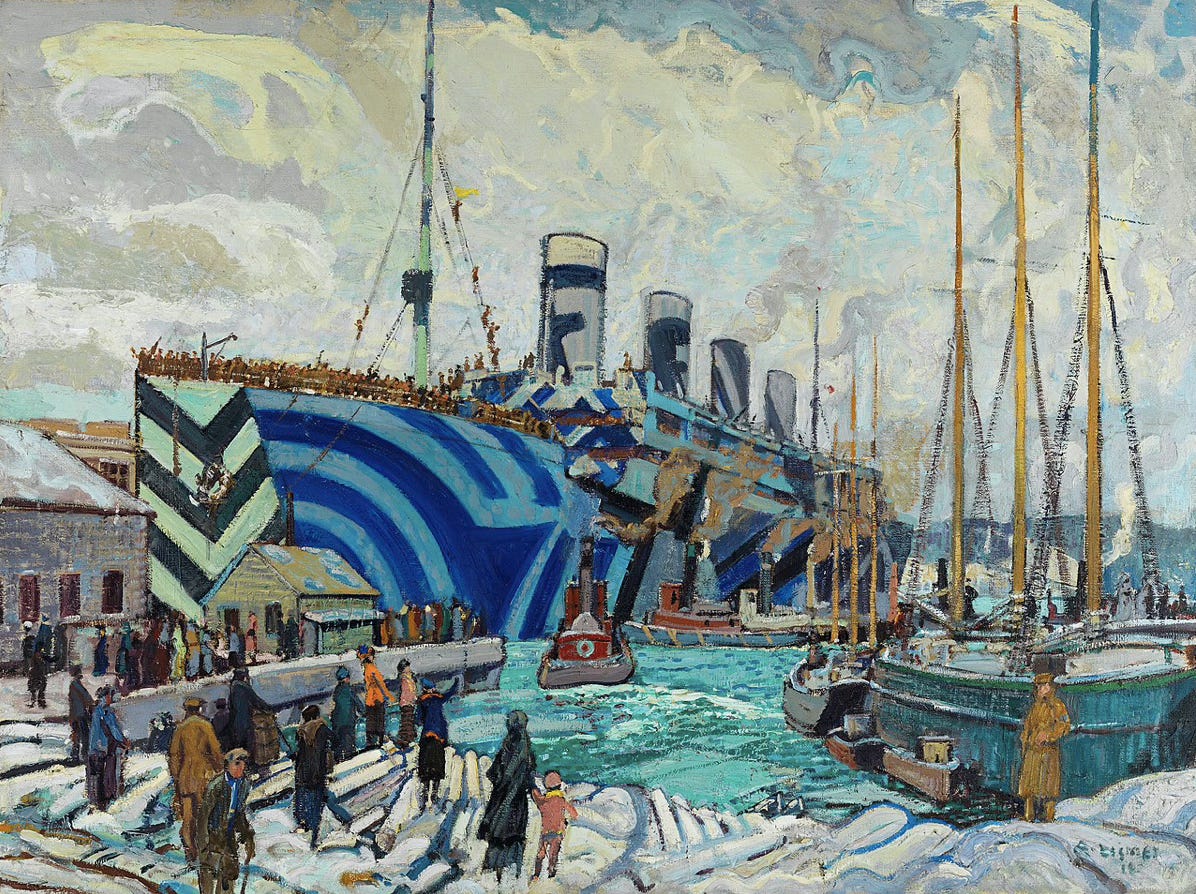Canada's Purposes
Resisting assimilation & self-defence are recurring themes
(Arthur Lismer, ‘Olympic With Returned Soldiers 1918’)
Far from dissolving into a ‘universal and homogeneous state’ – a term popularized by Alexandre Kojève, the Russian Hegelian philosopher who became a French and European public servant – Canada has repeatedly resisted assimilation.
Our refusal to give up national cultural identities came in three waves.
First, as a primarily French-speaking society with a large indigenous population, Canada defeated two American invasions, defused US-backed nineteenth-century rebellions and defied US cultural, digital and tariff-backed threats.
Second, French Canada successfully resisted British-backed policies of assimilation advocated by Lord Durham and others.
Third, First Nations and Inuit avoided full assimilation by pursuing land claims and self-government; launching natural resource projects; seeking reconciliation, compensation, improved housing, water and other services; and improving education to emphasize indigenous culture and languages.
In the end, the ‘universal and homogeneous state’ was as implausible as Fukuyama’s ‘end of history’ or Trotsky’s ‘permanent revolution.’ With Kojève’s theory exposed as a red herring, it becomes possible to see Canada’s purposes more clearly.
Every Canadian will have a view. Here are seven that occur to me:




